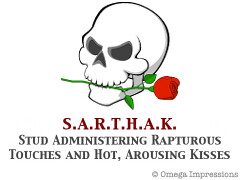Nostradamus's clever clairvoyance
Nostradamus's clever 'clairvoyance': the power of ambiguous specificity; how did a French astrologer, dead for over 400 years, become a premier commentator on world events in 2001? The authors' research shows that Nostradamus's dark prophecies are ambiguous enough to "work" for events selected at random and even when they are scrambled.
Amidst the chaos and confusion after the September 11 terrorist attacks, anxious people flocked to the Internet for any information that would shed light on the horrific event and its implications. In the weeks after the attack, Google, the most widely used World Wide Web search engine, predictably reported sharp increases in searches for "Osama bin Laden" and "al Qaeda."
Yet Google also reported that in the two weeks following the attacks, searches for a sixteenth century astrologer surpassed those for bin Laden and his organization (Grossman 2001). In fact, "Nostradamus" became one of Google's top searches, surpassing even the perennial favorite topic of "sex"! (See figure 1 for converging results from the "Buzz Index" on Yahoo, another popular search engine.) How did a French astrologer, dead for over 400 years, become a premier commentator on world events in 2001?
Michel Nostradamus was a sixteenth-century French physicist and astrologer who gained fame in the Renaissance for Centuries, his ten-volume collection of 942 four-line poetic prophecies, which he published in 1555. These prophecies have been eagerly studied for centuries.
In the tumult after tragic events, people over the last 400 years may have turned to Nostradamus to understand their world, just as modern citizens did right after the September 11 attacks. If so, then Nostradamus doesn't really have to predict events before they occur, he just has to look as though he predicted them after they have already occurred, That in itself is a pretty clever accomplishment: How could Nostradamus do it?
After spending a year researching his work and running controlled experiments, we suggest a combination of two factors: ambiguously specific prophecies that focus on dark, foreboding events.
Ambiguously Specific Prophecies
Anyone who has visited a card reader or psychic knows that the lifeblood of the fortune-telling trade is vagueness (such as "You will face an important decision soon"). In part, Nostradamus's prophecies seem to match this vagueness test. He used a famously cryptic, poetic style, interspersing his original French with selected Hebrew, Latin, and Spanish words and phrases, to create an aura of vagueness around each prophecy. Hence, each prophecy is difficult to attribute to an exact event.
But is vagueness enough? Clearly, it is not vagueness that drew Internet searchers to the following Nostradamus prophecy in the days after September 11:
At forty-five degrees the sky will burn,
Fire to approach the great new city,
In an instant a great scattered flame will leap up,
When one will want to demand proof of the Normans.
On the contrary, it is the prophecy's unnerving similarities to the attacks; it seems written specifically for our time.
Amidst the chaos and confusion after the September 11 terrorist attacks, anxious people flocked to the Internet for any information that would shed light on the horrific event and its implications. In the weeks after the attack, Google, the most widely used World Wide Web search engine, predictably reported sharp increases in searches for "Osama bin Laden" and "al Qaeda."
Yet Google also reported that in the two weeks following the attacks, searches for a sixteenth century astrologer surpassed those for bin Laden and his organization (Grossman 2001). In fact, "Nostradamus" became one of Google's top searches, surpassing even the perennial favorite topic of "sex"! (See figure 1 for converging results from the "Buzz Index" on Yahoo, another popular search engine.) How did a French astrologer, dead for over 400 years, become a premier commentator on world events in 2001?
Michel Nostradamus was a sixteenth-century French physicist and astrologer who gained fame in the Renaissance for Centuries, his ten-volume collection of 942 four-line poetic prophecies, which he published in 1555. These prophecies have been eagerly studied for centuries.
In the tumult after tragic events, people over the last 400 years may have turned to Nostradamus to understand their world, just as modern citizens did right after the September 11 attacks. If so, then Nostradamus doesn't really have to predict events before they occur, he just has to look as though he predicted them after they have already occurred, That in itself is a pretty clever accomplishment: How could Nostradamus do it?
After spending a year researching his work and running controlled experiments, we suggest a combination of two factors: ambiguously specific prophecies that focus on dark, foreboding events.
Ambiguously Specific Prophecies
Anyone who has visited a card reader or psychic knows that the lifeblood of the fortune-telling trade is vagueness (such as "You will face an important decision soon"). In part, Nostradamus's prophecies seem to match this vagueness test. He used a famously cryptic, poetic style, interspersing his original French with selected Hebrew, Latin, and Spanish words and phrases, to create an aura of vagueness around each prophecy. Hence, each prophecy is difficult to attribute to an exact event.
But is vagueness enough? Clearly, it is not vagueness that drew Internet searchers to the following Nostradamus prophecy in the days after September 11:
At forty-five degrees the sky will burn,
Fire to approach the great new city,
In an instant a great scattered flame will leap up,
When one will want to demand proof of the Normans.
On the contrary, it is the prophecy's unnerving similarities to the attacks; it seems written specifically for our time.
Labels: clairvoyance, Nostradamus Prophecies



<< Home